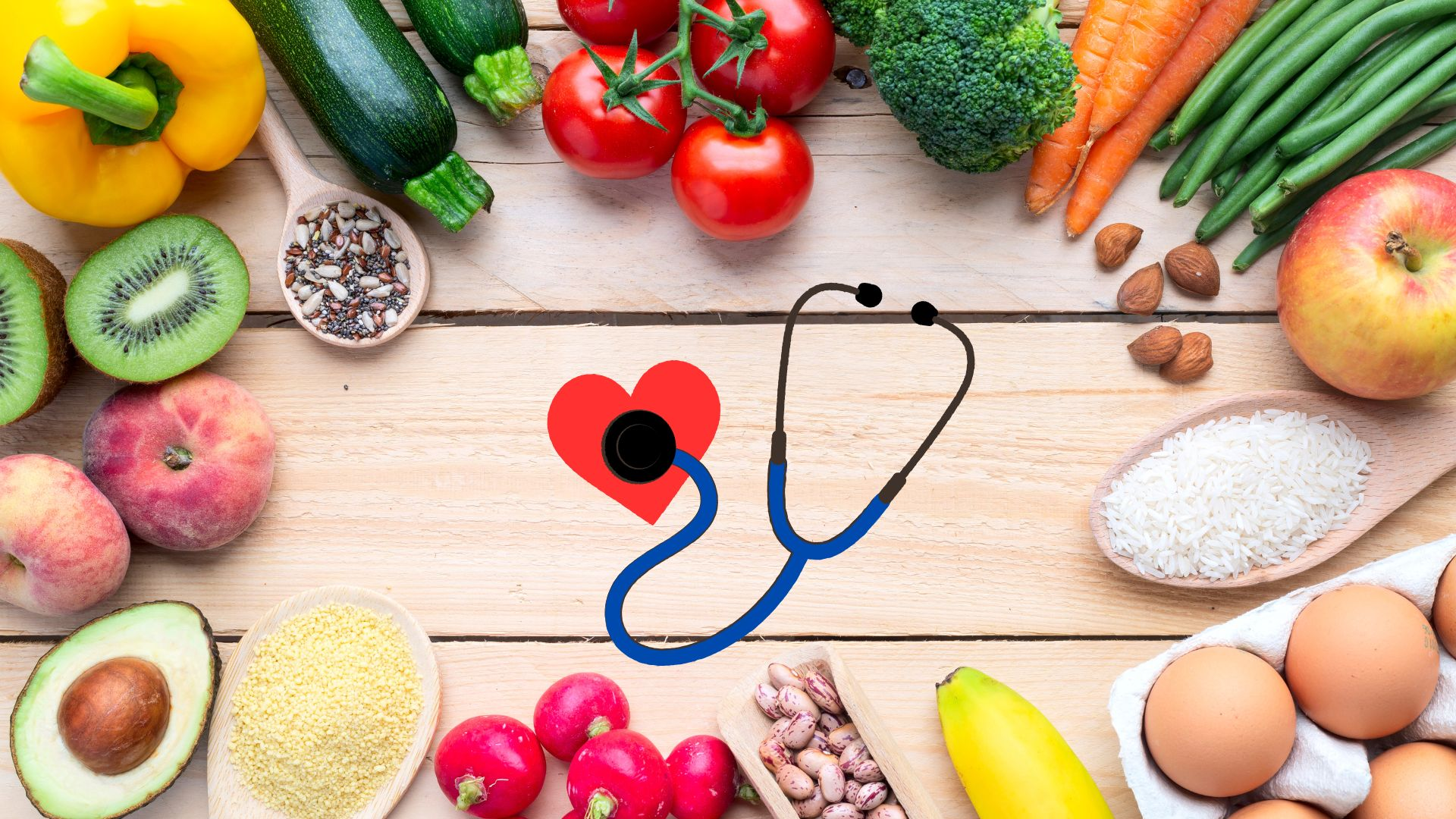Plant-Based Protein Vs. Animal Protein - Which Is Better?

Strong 8k brings an ultra-HD IPTV experience to your living room and your pocket.
It's a common debate in the world of nutrition: plant-based protein versus animal protein. With more people turning to plant-based diets for health, environmental, and ethical reasons, the question of which protein source is superior has become increasingly relevant. While animal protein has long been seen as the gold standard, recent research and trends suggest that plant-based protein may have its own set of benefits. In this blog post, we will explore the differences between plant-based and animal protein, their respective health implications, and ultimately, which protein source may be better for you.
Key Takeaways:
- Complete Protein Profile: Animal protein typically provides all the necessary amino acids required by the body in the right proportions, making it a complete protein source.
- Health Benefits: Plant-based proteins often contain less saturated fats and cholesterol compared to animal proteins, making them a healthier choice for maintaining heart health and reducing the risk of certain diseases.
- Sustainability: Plant-based proteins generally have a lower environmental impact, requiring fewer resources such as water and land, and contributing to a more sustainable food system.
Understanding Protein
Definition and Role of Protein in the Diet
Even before delving into the debate on plant-based versus animal protein, it's crucial to understand the importance of protein in our diet. Protein is a macronutrient made up of amino acids, which are the building blocks of our cells, tissues, and organs. It plays a vital role in numerous bodily functions, including muscle repair and growth, enzyme production, and immune system support.
Differences Between Plant-Based and Animal-Based Proteins
Any discussion on protein sources inevitably leads to the comparison between plant-based and animal-based proteins. While both sources provide important amino acids necessary for our bodies' functions, they differ in their nutrient profiles. Plant-based proteins, like beans, legumes, nuts, and seeds, tend to be lower in saturated fats and cholesterol and higher in fiber and antioxidants compared to animal proteins.
With Further Insights on Differences Between Plant-Based and Animal-Based Proteins
With plant-based proteins, individuals can benefit from a wide range of nutrients that support overall health and well-being. Additionally, plant-based proteins can be more environmentally sustainable and ethical choices compared to animal-based proteins. It is important to incorporate a variety of protein sources into your diet to ensure you are meeting your nutritional needs adequately.
Nutritional Comparison
| Plant-Based Protein | Animal Protein |
| Lower in saturated fat | Higher in complete protein |
| Rich in fiber and antioxidants | Rich in crucial nutrients like Vitamin B12 and heme iron |
| May help reduce the risk of chronic diseases | May support muscle growth and repair |
Amino Acid Profiles
Profiles of plant-based proteins are often considered incomplete compared to animal proteins as they may lack certain crucial amino acids. However, combining different plant protein sources can provide a complete amino acid profile similar to animal protein.
Micronutrients and Associated Health Benefits
Micronutrients found in plant-based proteins, such as vitamins, minerals, and phytonutrients, are associated with various health benefits including improved heart health, better digestion, and reduced inflammation. Animal proteins provide important nutrients like iron, zinc, and Vitamin B12 that are crucial for overall health.
When choosing between plant-based and animal protein sources, consider your individual nutritional needs and health goals. Both types of proteins have their own unique benefits, and a well-balanced diet that includes a variety of protein sources is key to meeting your nutritional requirements.
Environmental and Ethical Considerations
Ecological Impact of Protein Sources
On a global scale, animal farming for meat and dairy products is a major contributor to deforestation, greenhouse gas emissions, water pollution, and biodiversity loss. The intensive farming practices required to meet the demand for animal protein have significant negative impacts on the environment, making it a less sustainable choice compared to plant-based protein sources.
Ethical Implications of Dietary Choices
Protein consumption is not just a personal choice but also a moral decision that can have far-reaching consequences. The ethics of consuming animal products involve considerations of animal welfare, environmental impact, and sustainability. Making informed choices about the sources of protein in our diets can have a positive impact on our health and the planet.
Understanding the ethical implications of our dietary choices involves recognizing the impact of our food consumption on not just ourselves but also on the environment, animals, and future generations. By opting for plant-based protein sources, we can make a conscious decision to reduce our environmental footprint and contribute to a more sustainable food system.
Health Impacts and Dietary Recommendations
Effects on Long-Term Health
For all the debate between plant-based and animal protein, research suggests that both can be part of a healthy diet. However, consuming too much animal protein, particularly red and processed meats, has been linked to an increased risk of chronic diseases such as heart disease, diabetes, and certain types of cancer. On the other hand, plant-based proteins like legumes, nuts, and seeds have been associated with lower rates of these diseases and may promote longevity.
Protein Recommendations for Different Populations
Health experts recommend different protein intake levels depending on age, sex, activity level, and health status. For instance, athletes and individuals looking to build muscle may need more protein than sedentary individuals. Pregnant and breastfeeding women also require additional protein to support the growth and development of their babies. Older adults may benefit from higher protein intake to maintain muscle mass and function as they age.
Plus, plant-based diets can provide all the vital amino acids needed by the body when a variety of plant protein sources are consumed throughout the day. It's important for vegetarians and vegans to include a mix of protein-rich plants like beans, lentils, tofu, and quinoa to ensure they are meeting their daily protein needs.
Conclusion
To wrap up, both plant-based protein and animal protein can be beneficial sources of protein in a balanced diet. Plant-based protein offers a variety of nutrients, is often lower in saturated fats, and can be more sustainable for the environment. On the other hand, animal protein provides all vital amino acids and is a rich source of vitamin B12 and iron. Ultimately, the best choice depends on individual preferences, dietary needs, and ethical considerations. It is vital to focus on a diverse diet that includes a mix of plant-based and animal-based proteins to ensure optimal health and nutrition.
FAQ
Q: What is plant-based protein?
A: Plant-based protein refers to protein derived from plant sources such as legumes, nuts, seeds, grains, and vegetables. These sources provide important amino acids and nutrients necessary for a healthy diet.
Q: What is animal protein?
A: Animal protein comes from animal sources such as meat, poultry, fish, dairy, and eggs. It is a complete protein containing all important amino acids required for the body to function properly.
Q: Which is better - plant-based protein or animal protein?
A: Both plant-based and animal protein can be beneficial for overall health. However, plant-based proteins are often lower in saturated fats and cholesterol, making them a healthier choice for heart health. On the other hand, animal proteins are complete proteins and provide certain nutrients like vitamin B12 and heme iron that are not easily found in plant-based sources. The key is to have a balanced diet that includes a variety of protein sources for optimal health benefits.
Note: IndiBlogHub features both user-submitted and editorial content. We do not verify third-party contributions. Read our Disclaimer and Privacy Policyfor details.







